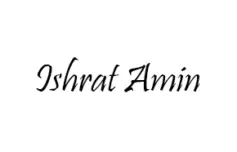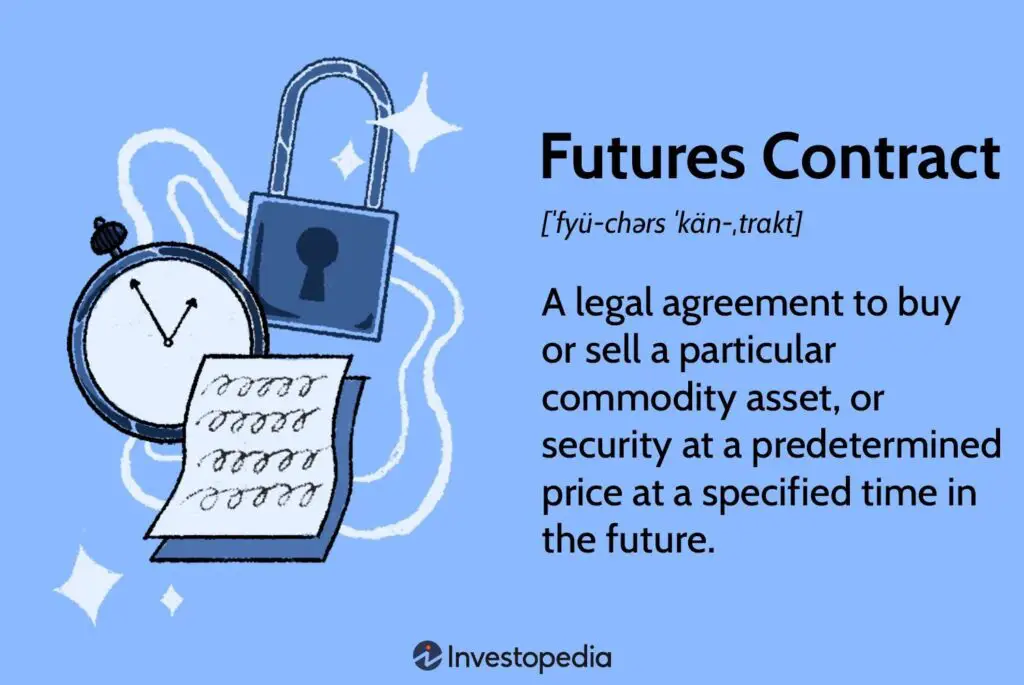Have you ever wondered how commodities like crude oil, gold, or wheat are traded in the financial markets? Understanding futures contracts in commodities is the key to unlocking the secrets behind this complex and intriguing world. In this article, we will dive straight into the fascinating realm of futures contracts, where traders and investors converge to speculate on the future prices of various commodities. Join us as we uncover the mechanics and dynamics of these contracts, demystifying the jargon and shedding light on the inner workings of this thriving marketplace. Get ready to explore the exciting world of understanding futures contracts in commodities!
Understanding Futures Contracts in Commodities
Investing in commodities can be a complex endeavor, and futures contracts play a crucial role in this market. Whether you are a seasoned trader or new to commodities investing, understanding the fundamentals of futures contracts is essential. In this comprehensive guide, we will explore the ins and outs of futures contracts in commodities, providing you with the knowledge to navigate this exciting and potentially lucrative market.
What are Futures Contracts?
A futures contract is a legally binding agreement between two parties to buy or sell a specific quantity of a commodity at a predetermined price, with the delivery and payment occurring at a future date. The primary purpose of futures contracts is to provide price stability and manage risks for both buyers and sellers.
Standardization and Exchange-Traded Futures
Futures contracts are typically standardized and traded on exchanges. These standardized contracts specify the quantity, quality, delivery date, and delivery location of the underlying commodity. By standardizing these parameters, futures contracts create a liquid market where traders can easily buy or sell their positions.
Long and Short Positions
In futures trading, there are two parties involved: the long and the short. The long position holder agrees to buy the underlying commodity, while the short position holder agrees to sell it. These positions can be held by individual traders, speculators, or institutional investors.
When a trader takes a long position, they are expecting the price of the commodity to increase. In contrast, a short position is taken when the trader anticipates a decline in the commodity’s price. Both long and short positions come with their own risks and rewards, and understanding these dynamics is crucial for successful futures trading.
How do Futures Contracts Work?
To gain a deeper understanding of futures contracts, let’s explore the key components and mechanics of how they work:
Expiration and Delivery Months
Futures contracts have specific expiration months, which are predetermined by the exchange. For example, a futures contract for crude oil may have expiration months of January, February, March, and so on. Traders need to be aware of these expiration dates and plan their positions accordingly.
It’s important to note that most futures contracts are settled without physical delivery of the underlying commodity. Instead, traders close out their positions by taking an offsetting contract before the expiration date. However, some contracts, especially in agricultural commodities, may result in physical delivery.
Margin and Leverage
Futures trading involves the use of margin, which allows traders to control a larger contract value with a relatively small upfront capital requirement. Margin acts as a performance bond, ensuring that traders fulfill their obligations in the contract. The margin requirement varies based on factors such as the volatility of the commodity and the exchange’s rules.
Leverage is a key advantage of futures trading, as it allows traders to magnify their potential gains and losses. However, it’s important to exercise caution when using leverage, as it can amplify the risks associated with trading.
Marking to Market
One unique feature of futures contracts is the daily settlement process known as marking to market. At the end of each trading day, the gains or losses from the price movement of the contract are settled. If the contract has experienced a gain, the short position holder pays the long position holder. Conversely, if there is a loss, the long position holder pays the short position holder.
Marking to market ensures that profits and losses are accounted for regularly, allowing traders to manage their positions in real-time. It also helps maintain the financial integrity of the market and ensures the smooth functioning of futures trading.
Why Trade Futures Contracts in Commodities?
Futures contracts provide numerous advantages for traders and investors in the commodities market. Here are some key reasons why traders choose to trade futures contracts:
Hedging
One of the primary purposes of futures contracts is to hedge against price volatility. Agricultural producers, mining companies, and other participants in the commodities market use futures contracts to manage their exposure to price fluctuations. By entering into a futures contract, these market participants can lock in a price for their future production or purchase, protecting themselves from adverse price movements.
Speculation
Futures contracts also attract speculators who aim to profit from price movements in the commodities market. Speculators take positions based on their analysis of supply and demand factors, macroeconomic trends, and technical indicators. The ability to trade both long and short positions allows speculators to profit in both rising and falling markets.
Liquidity
Compared to the physical commodities market, futures contracts offer greater liquidity. The standardized nature of futures contracts and the presence of active market participants ensure that there is always a buyer or seller available. This liquidity provides traders with the flexibility to enter or exit positions quickly, enhancing their ability to manage risk and capitalize on opportunities.
Diversification
Including commodities futures contracts in an investment portfolio can provide diversification benefits. Commodities tend to have a low correlation with traditional asset classes such as stocks and bonds. Adding futures contracts linked to commodities can help reduce overall portfolio risk by providing exposure to a different asset class.
Key Factors to Consider when Trading Futures Contracts in Commodities
Successfully trading futures contracts in commodities requires careful consideration of various factors. Here are some key aspects to keep in mind:
Market Analysis
Before entering any trade, it’s essential to conduct thorough market analysis. Consider factors such as supply and demand fundamentals, geopolitical events, weather patterns, and global economic trends. Technical analysis tools, such as chart patterns and indicators, can also help identify potential entry and exit points.
Risk Management
Risk management is a crucial aspect of futures trading. Set clear risk parameters by determining the maximum amount you are willing to risk on any single trade. Utilize stop-loss orders to automatically exit a position if the trade goes against you. Diversify your portfolio across different commodities to mitigate potential losses.
Stay Informed
The commodities market is influenced by a wide range of factors. Stay informed about market news, government policies, and industry developments that can impact commodity prices. Subscribe to reliable news sources, follow expert analysts, and participate in online forums to stay up to date with the latest information.
Choose the Right Broker
Selecting a reputable and reliable broker is essential for trading futures contracts. Look for brokers that offer competitive commission rates, user-friendly trading platforms, and access to a wide range of commodities markets. Ensure the broker is regulated by a recognized authority to protect your investments.
Understanding futures contracts in commodities is vital for anyone looking to participate in this dynamic market. Whether you are hedging against price volatility or speculating on future price movements, futures contracts provide the necessary tools for managing risks and potential profits. By grasping the mechanics of futures contracts, conducting thorough market analysis, and employing effective risk management strategies, you can navigate the commodities market with confidence and potentially unlock lucrative opportunities.
What Are Commodity Futures? – SmarterWithMoney
Frequently Asked Questions
Frequently Asked Questions (FAQs)
What are futures contracts in commodities?
Futures contracts in commodities are legally binding agreements made between buyers and sellers to trade a specific quantity of a commodity at a predetermined price, with delivery occurring at a specified future date.
How do futures contracts work in commodities?
Futures contracts work in commodities by providing a standardized method for buyers and sellers to hedge against price volatility. The contracts allow participants to speculate on the future price movement of the commodities, enabling them to manage risk or take advantage of potential profit opportunities.
What is the purpose of trading futures contracts in commodities?
Trading futures contracts in commodities serves various purposes, including price discovery, risk management, and investment speculation. It enables producers and consumers to hedge against adverse price movements, while also offering opportunities for traders and investors to profit from price fluctuations.
What types of commodities are typically traded through futures contracts?
Futures contracts are commonly used for trading agricultural commodities such as wheat, corn, soybeans, coffee, and livestock. Additionally, energy commodities like crude oil and natural gas, as well as metals such as gold, silver, and copper, are actively traded through futures contracts.
What is the difference between spot price and futures price in commodities?
The spot price in commodities refers to the current market price for immediate delivery of a commodity, whereas the futures price represents the anticipated price at which a commodity will be bought or sold on a specified future date. Futures prices also incorporate expectations of future supply and demand, as well as factors like storage costs and interest rates.
How are futures contracts settled in commodities?
Futures contracts in commodities can be settled through physical delivery or cash settlement. Physical delivery requires the actual transfer of the underlying commodity, while cash settlement involves the payment or receipt of the difference between the futures price and the spot price at the contract’s expiration.
What is the role of margin in futures contracts in commodities?
Margin is an essential aspect of futures contracts in commodities. It acts as a performance bond, ensuring that traders have sufficient funds to cover potential losses. By requiring traders to deposit a fraction of the contract value as margin, exchanges can mitigate the risk of default and ensure the integrity of the trading system.
Are futures contracts regulated?
Yes, futures contracts in commodities are regulated by governmental bodies such as the Commodity Futures Trading Commission (CFTC) in the United States. These regulatory authorities oversee the fair trading of futures contracts, promote market transparency, and enforce rules to protect market participants from fraudulent activities.
Final Thoughts
Understanding futures contracts in commodities is essential for anyone looking to participate in the commodities market. Futures contracts allow individuals and businesses to speculate or hedge against price movements in various commodities like oil, gold, corn, or wheat. By entering into a futures contract, parties agree to buy or sell a specific quantity of the commodity at a predetermined price and date in the future. This provides a valuable tool for managing price risk and securing future supply or sales. Whether you are a producer, consumer, or investor, understanding futures contracts in commodities is crucial for making informed decisions and navigating the volatility of the market.

